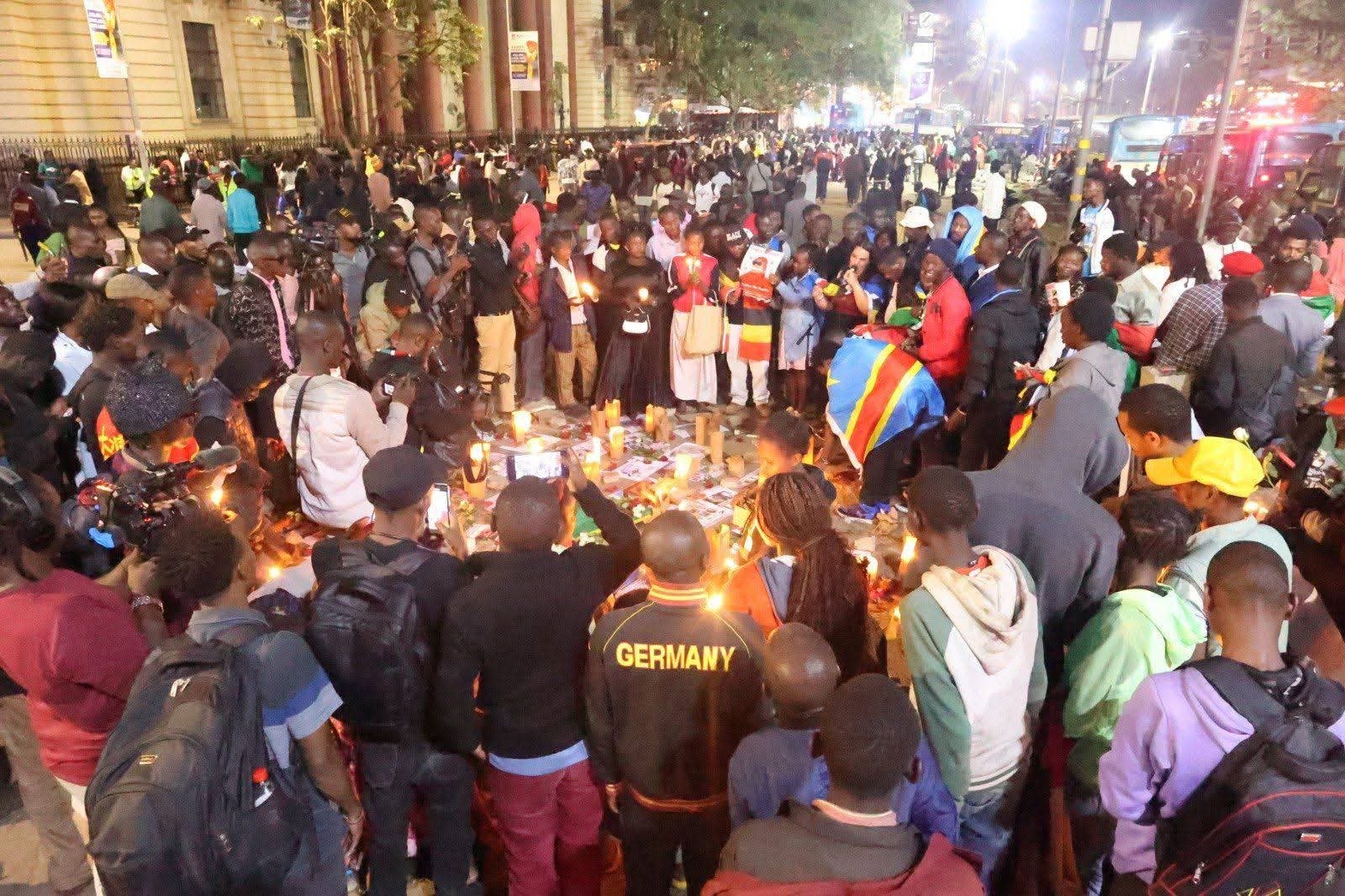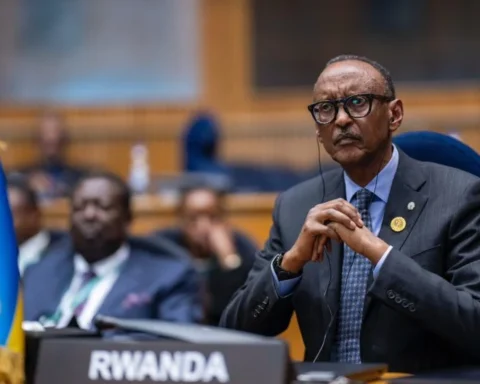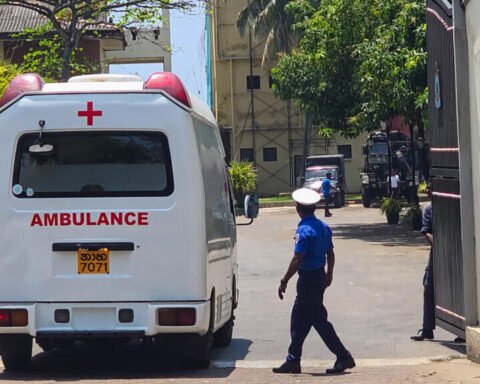Activists in Nairobi gathered this week for a solemn vigil in memory of people who lost their lives during the post-election unrest that recently shook Tanzania.
The event, held in the Kenyan capital, drew dozens of participants who came together to honor the victims through song, prayer, and candlelight.
Many who attended carried flags and hand-written placards calling for peace and justice. Soft hymns filled the air as candles were lit one by one—each flame representing a life taken during the turbulent days following Tanzania’s October 29 general election. Organizers described the vigil as both a tribute and a reminder of the need for accountability.
The protests in Tanzania began shortly after voting concluded, fuelled by claims that several major opposition groups had been unfairly excluded from the ballot. Critics argued that the process undermined the credibility of the election, raising concerns about whether the vote met the basic standards of fairness. These frustrations quickly spread across parts of the country, igniting demonstrations that escalated in intensity as security forces responded with force.
Human rights groups say the scale of the violence has been deeply troubling, with reports of casualties emerging from multiple regions. While the exact number of deaths remains disputed, activists and observers insist that the toll is significant and that transparent investigations are essential. The controversy comes against the backdrop of the 2025 Tanzanian general election ([2025 Tanzanian general election]), which has been widely scrutinized both locally and internationally.
In response to the public outcry, the government of Tanzania announced the formation of an independent commission tasked with examining the circumstances surrounding the unrest. Officials say the panel will review the events that triggered the demonstrations, investigate allegations of excessive force, and recommend steps to prevent similar incidents in the future. However, some opposition groups remain skeptical, suggesting that the process may lack impartiality.
Also Read; Mining Firm Highlights Commitment To Safer Tailings Systems
For Tanzanians living abroad, including many in Kenya, the situation has been emotionally heavy. Several of those who attended the Nairobi gathering said they wanted to show solidarity with families who lost loved ones and to call for justice in the wake of the tragedy. Others expressed frustration that political grievances had escalated into deadly confrontations.
The tensions stem from a broader political landscape in which opposition movements such as Chadema ([Chadema]) have questioned the fairness of electoral processes and the room available for dissenting voices. These issues contributed to widespread anger that erupted into protests across the country—now widely discussed as part of the 2025 Tanzanian election protests ([2025 Tanzanian election protests]).
As the night drew to a close in Nairobi, activists urged regional leaders and international partners to monitor developments closely and support efforts to uphold human rights. They emphasized that healing will require truth, transparency, and assurance that such loss of life will not happen again.







